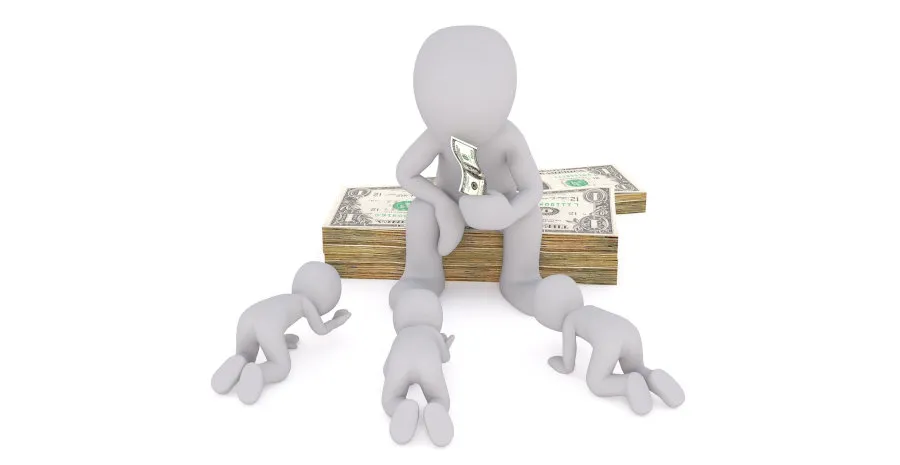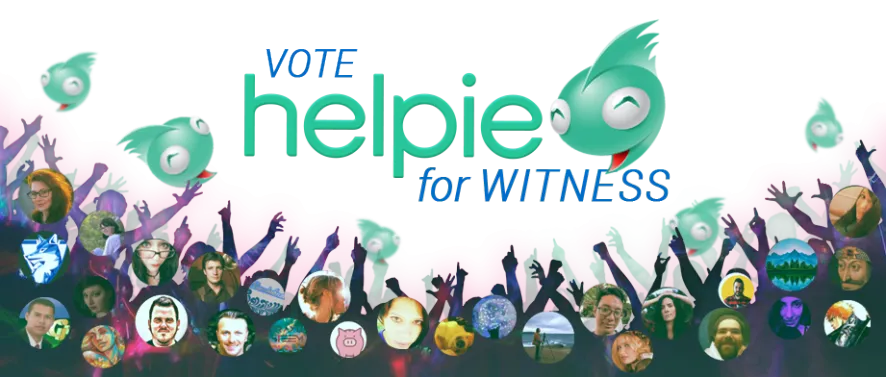Even if you do not believe the premise implied by the title of this post to be true, we should be able to agree that there are certain things that are not fit for the "free market" to decide. Some things are sacred. Not in a religious sense, but from a humanistic perspective.

source: Needpix.com
Ask yourself this: how rich do we have to become as a society before we won't accept hunger and homelessness anymore? That's a rhetorical question; we already are more than rich enough to to achieve that goal and, as a society, we should all be ashamed that these problems still exist. This presumes that we believe it IS a problem, and I'm afraid there are still far too much individuals who do not believe poverty is a problem, many even say it's a necessity and fear that without poverty as an incentive, people would become lazy, would stop inventing things, stop caring about technological progression; for them the end of poverty is a nightmare of human complacency. I won't go into detail about that misconception today and just say that, as a species, we'll NEVER stop being curious about how everything can become better, faster, more efficient and so on. People who fear the human complacency hell simply don't understand what makes us tick.
Growth, in the sense of creating real wealth, better products, more products for more people and so on, in itself is not a bad thing; this is how we progress toward a better world for all people. Growth becomes a problem when it's achieved through an ideology that makes all growth personal, when it's based on the growth of individual property; this is how we've created the modern day kings and emperors, the richest 0.001 percent that rule the planet and own every government on the globe. This is how we create the ever widening chasm between the haves and the have nots. This is how we LIMIT liberty by concentrating power in the hands of the few. And no, there is no invisible hand to prevent all that. There's government though, and there's the IDEA of democracy; without the concentration of economical power, democracy would have a fighting chance, democratic freedom would be real and voters would feel they have at least some power to influence their collective and individual future.
"Collective" however, has become a dirty word almost, along with "communal", "shared" and "universal"; decades of non-stop propaganda has made many people internalize the notion that they are the sole masters of their own lot in life, and consequently the only one to blame when they fail in life. This is nonsensical to me; every individual is both product and part of the society they're born into, so if that society produces individuals we deem to qualify as "failures", it's that society's fault and every individual in it, democracy or not. It's the denial of this basic and, in my eyes, obvious truth that leads people to believe that Jeff Bezos is worth every 130 billion or so dollars he's accumulated. If you really believe in the meritocracy, in purely individual achievements, you should recognize immediately that NO single individual can work that hard. None. Humans have only been able to create any wealth in surplus of their own immediate needs through cooperation; "many hands make light work", remember? Bezos made a website. He made "Walmart online". Now, is he the world's best website creator? Did he win some online store creation world championship? Is he even in the top 1000 of the world's best website-coders? How about Gates: did he create the world's most popular operating system? Or the best? Or Steve Jobs: did he develop ANY of the technologies used in either the iPod or the iPhone? The answer to all these questions is a resounding NO. Meritocracy? Or were the above mentioned gentlemen simply very good at making a profit, seeing an opportunity and immediately going for it? That's a resounding YES. They were at the right place at the right time and occasionally had the right idea. Many billions of people work very much harder than these gentlemen; a meritocracy capitalism is not.
Fancy mobile phones is one thing that can be left to a marketplace, maybe. But what about the most basic needs for a decent living? Should they be distributed by the rules of a game that values greed above anything else? Yes, it's greed, even if you want to call it "personal gains" or some other euphemism; enterprises that do not maximize profits do not survive in the long run and "mom and pop stores" are quickly becoming a thing of the past (and yes, their online equivalents will suffer the same fate). Monopolies are inescapable as they are the result of the concentration of money and power in the hands of the mega corporations, the ones that remain after the knock-out competition that eliminated all other contenders, so the question is who do you want to have that monopoly? Those for profit corporations, or a democratically elected government? That's the only choice we have in an all-encompassing system that's built on the private accumulation of wealth. Forget the invisible hand; it's not there.
If corporations hold the monopoly, we get scenario's as discussed in the below linked video about how insurance companies maximize their profits in healthcare. It shows exactly how the profit motive overshadows basic humanity, and how far people are willing to go to ensure those maximum profits; insurance companies hire nurses to act as the front-line of their deny-as-much-claims-as-possible policy... Just call it how it is; people are dying over greed here, and this is just one of many examples I could point to. Like I said in the introduction; we should be able to agree that there are certain things that are not fit for the "free market" to decide. Healthcare should be universal; we all pay for it according to our ability and we all benefit equally. That means you get the same doctor and the same care as mr. Bezos, even if he likes to believe he worked a thousand times harder or is a thousand times smarter than you. He's not. Admitting that is not the same as "hating the rich", so don't listen to the mainstream media. There's not one person, or just a few persons to blame for this; this healthcare example shows how it's the result of a system, and how every individual in that system simply acts as the system expects them to act. It's not Bezos' fault. The nurses aren't to blame. It's the reality we create with a collective (there's that dirty word again) mindset, a mindset we can also collectively change...
Fmr. Healthcare Exec Wendell Potter: Pete is running the industry playbook
Thanks so much for visiting my blog and reading my posts dear reader, I appreciate that a lot :-) If you like my content, please consider leaving a comment, upvote or resteem. I'll be back here tomorrow and sincerely hope you'll join me. Until then, keep steeming!

Recent articles you might be interested in:

Thanks for stopping by and reading. If you really liked this content, if you disagree (or if you do agree), please leave a comment. Of course, upvotes, follows, resteems are all greatly appreciated, but nothing brings me and you more growth than sharing our ideas. It's what Steemit is made for!


@helpie is a WITNESS now! So please help @helpie help you by voting for us here!
